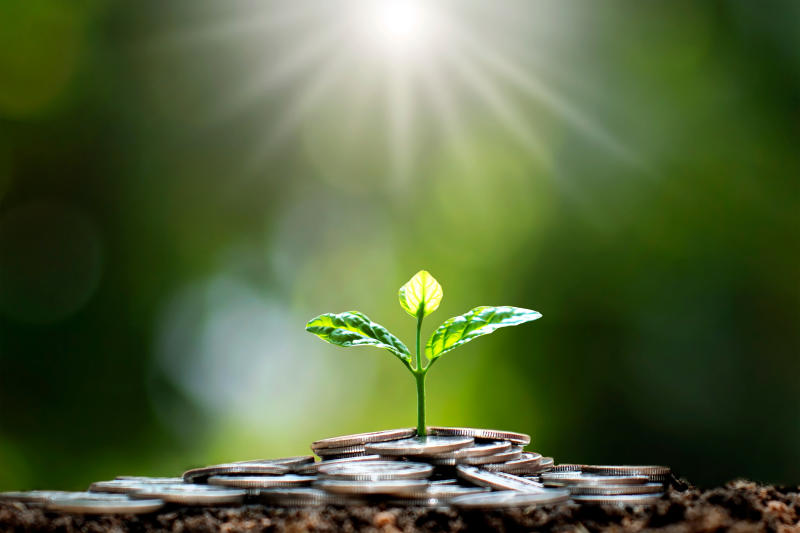The sight of marine animals being choked by plastics. Cases of extreme weather that seem to occur more frequently. Or the ever-rising cost of energy and desperate need to find alternative, cleaner and preferably renewable sources.
Environmental and health risks are just some of the trends that reinforce a growing interest in environmental, social and governance (ESG) issues.
Other factors include a shift in focus among young generations, pressure from regulators on companies to realise and commit to the United Nations’ Sustainable Development Goals (SDG) and better insight into everything from advanced technology including Big Data, blockchain and artificial intelligence.
Together, these developments ensure that sustainability is not just a slogan but an actionable agenda.
And where can action speak the loudest if not through the wallet?
For discerning people, investing sustainably — making sure that their money not only generates profit but also contributes positively to the ESG issues — is among the most effective ways to turn their conviction into reality.

“Among individuals, we have observed that they are now increasingly concerned about the environmental and social impact of how they live, work and play. Moreover, they are also paying attention to the impact of their investments, in addition to achieving financial returns,” said Yuttachai Teyarachakul, managing director, UOB Thailand’s head of Personal Financial Services.
In this regard, investors are holding companies accountable for contributing to sustainable developments, including mitigating negative environmental effects and ensuring social well-being, he added.
The 2022 UOB ASEAN Consumer Sentiment Study found a significant rise in the proportion of Thais who want to find out more about sustainable investment, with seven in 10 already starting to invest in green investment-related products.
A few decades ago, it might have been the case that the economy and the ecology were in different corners for a zero-sum game. Paying extra care to the environment or social well-being could incur more costs, cutting back on the company’s profitability.
With new technology and an adoption of circular economy where companies are encouraged to use resources more efficiently, reduce waste and recycle materials and products as long as possible, going green has proven to keep a company’s balance sheet in the black.
While there are initial costs in modifying business practices, there are significant cost savings when business can reduce energy, water and materials waste, according to Yuttachai.
Companies are, however, less likely to face regulatory fines or punishment related to poor sustainability practices.

“The question is no longer whether companies should embark on the sustainability journey, but rather whether they can afford not to be part of it,” Yuttachai remarked.
Globally, sustainable investment is among the fastest growing market. According to a PwC report, global sustainable assets under management (AUM) grew from US$ 2.2 trillion in 2015 to $18.4 trillion in 2021. It was projected that this figure will reach at least $33.9 trillion by 2026.
“We see more regulators implementing guidelines for the investment management industry, for instance the classification of ESG funds. Investment firms are being held to higher standards to prevent risks of greenwashing,” Yuttachai said.
On the other hand, as institutional investors such as sovereign wealth funds and pension funds seek to maintain the quality of their own portfolios, they are demanding that companies they invest in strengthen their sustainability practices.
“As such demands grow, funds channelled into sustainable investments are permeating almost every industry, business and region,” Yuttachai said.
In Thailand, net assets of sustainable investment funds stood at 54.2 billion baht, increasing by 3.8% from the end of last year, according to Yuttachai.
“At UOB, our AUM in sustainable investment grew by 62% in the last two years [as of end of 2022]. We believe we will hit new AUM highs in this area as more investors consider sustainability as an important factor when they invest,” he said.
How can people feel assured that their investment benefits genuine sustainable efforts and not publicity campaigns?
To avoid greenwashing, UOB maintains a high and strict standard for its ESG investment products.
“We have established an award-winning ESG investment selection framework that screens for products that meet our sustainable investment criteria,” Yuttachai said.
For example, so-called green bonds were selected based on the ESG data and index solutions from the bank’s product providers ensuring that the use of proceeds are in adherence to the industry-standard Green Bond Principles.
“That is why the number of products that qualify as sustainable investments tend to be a small percentage of the bank’s product universe. For example, only about 10% of the unit trusts we offer are considered sustainable investment,” Yuttachai said.
Despite the small percentage, the products are well designed to cover strategic ESG directions while catering to investors with different levels of risk tolerance.
There are strategies that focus on investing in sustainable stocks around the world or those that focus on clean energy suitable for investors who can accept risks.
For investors with lower risk tolerance, high-quality fixed income funds selected through the SDGs are available.
The bank also offers a mixed fund that keeps in balance a variety of assets through in-depth analysis of unique sustainability factors which should suit investors looking for a portfolio core for long-term investment.
Investors who are keen to earn returns and see social change may opt for impact investing, an investment strategy aimed at making a tangible and measurable positive impact on society.
“When advising our customers in managing their wealth and investing sustainably, we remain focused on our Risk-First wealth advisory approach, which helps protect their assets before building their future wealth,” Yuttachai said.
This article is part of a 20-part series that explores what it takes to create and secure a sustainable future. In collaboration with UOB. You can view the whole series here.


